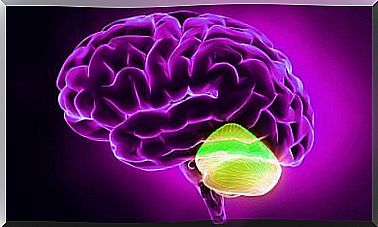Why Am I Never Angry?

Anger, despite its bad reputation, well managed is a very valuable help. In fact , some people may feel that they are not capable of being angry, even when they have been harmed or treated unfairly. A perceived disability that makes them feel bad.
Actually, to be precise, these people do get angry; they are capable of feeling that others have violated their rights. What happens is that their coping strategy is one of extreme containment, often guided by insecurity and poor social skills. Thus, what they achieve is that the energy of emotion turns against them and their well-being.

Why is anger sometimes necessary?
Anger, like the rest of the basic emotions, fulfills several essential functions. Despite its reputation as a negative emotion, it is necessary when situations arise that can threaten integrity. That is, anger has a basic role in survival and, consequently, in the evolutionary function as a species.
Physiologically, anger is easy to identify. There is an increase in neurotransmitters such as adrenaline and norepinephrine, hormones involved in emotions such as fear and aggressiveness. Also, blood pressure and respiration skyrocket. The body prepares for the confrontation.
Beyond survival terms, anger is the instigator of change. Staying in anger is an unpleasant situation that forces, with its great energy contribution, to change what bothers us. It can also motivate us to defend personal limits when they are in danger of being violated.
Why is it so hard for me to express my anger?
There are people who feel unable to express anger. And we are not referring to a question of trying to control certain impulses to achieve a successful conclusion.
When a person feels that he is not angry, he can never be immersed in harmful situations precisely because he has not reacted in similar and previous situations. Next, we describe some factors that explain the phenomenon.
- The society of the ” happycracy “. It is not worth being angry, sad or afraid. You have to be happy all the time. In this new fashion, anger belongs to that group of emotions misnamed negative and unacceptable in any situation.
- If I get angry, they can get angry. Fear of the reaction of others can be a reason for not expressing your own anger. If there is a very rigid role of always being a cheerful or understanding person, it can be especially difficult to dare to show this unexplored part to others.
- Those close to him did not get angry or, on the contrary, they always did. Family inheritance involves, among other things, learning how the main attachment figures handled different emotions. You may be from a family that is reluctant to show anger. In the same way, when a person experienced harmful anger expression situations, they may have developed an avoidance of anger expression as a defense mechanism.
- Difficulties in the social sphere or related to shyness. When there are these types of social difficulties, it can be common not to show these types of emotions due to the enormous stress that this interaction produces in itself. The person feels so socially tense or anxious that they may be unable to display emotions naturally.
Does something happen if I really can’t express it?
There are several reasons why a person may have difficulties with emotions related to anger or anger; something that can have consequences in different areas of personal life.
As we explained previously, this is a basic emotion with various functions at a psychological and physiological level. So what can happen if you tend to always repress anger?
To answer this question, it is interesting to be able to ask yourself the following questions thinking about specific situations: ” In what situations have you felt that you should be angry, despite not being able to do so?” and “what consequences does the repression of anger bring?” . Perhaps, after this reflection, you may have seen yourself reflected in one of these situations:
- You were not able to put limits on the others. Be it in the workplace, social, love or other, the repression of anger can prevent fully assertive behaviors from being achieved. This disability is usually related to a passive communication style.
- Feeling of stagnation You may feel that, for a long time, something is not right or that you need a change. However, the difficulty in expressing anger can preclude the feeling of discomfort that precedes the change.
- The emotion itself could not be relieved and later overflowed. When we repress any emotion it does not tend to magically disappear. In fact, their own expression leads to an emotional discharge that relieves the tension produced. It may be that by not giving this space to express anger, anger has a cumulative effect that later erupts with any minimal stressor.

The anger that releases and gives breath
Despite its fame as a negative emotion, anger plays a regulatory role in human beings. In fact, it is a great instigator of changes at a personal and social level, a defense mechanism against agents that threaten personal integrity and, finally, it enjoys having a cushioning role against anxiety when we manage it well.
In contrast, some people feel unable to express and experience emotions related to anger and rage. The social reinforcement of the smile or the personal experiences of how those close to them have dealt with these emotions can be an obstacle to the adaptive expression of anger. Also, the repression of anger can be related to problems of shyness or fear of the reaction of others.
Thus, in case of difficulty, it is especially important to work on the proper expression of anger. Otherwise, it is possible that we do not respond non-assertively when it is necessary to do so, that we experience a certain vital stagnation or that we accumulate so much anger that it ends up overflowing.
You will find situations that require calm, that end in tears or deep anguish. In the same way, there will be situations in which you feel especially damaged or stagnant; perhaps, then, you need to express anger. That anger that, expressed intelligently, liberates, gives encouragement and puts us safe.









